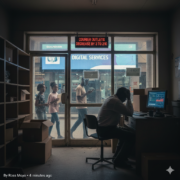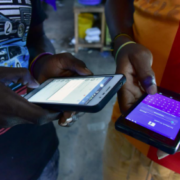“In line with the need to ensure compliance with exchange control directive RN32 dated 21 February 2012, Exchange Control will enhance the verification and analysis of the weekly EC Form Nostro Return and reconcile it with the weekly submission of FCA balances so as to ensure that banks maintain nostro balances within the stipulated thresholds.”
This policy forced all banks to expatriate their Nostro funds balance, virtually surrendering 75% of their bank balance, which was never funded back as and when demanded, but in fact received local payments through the Zimbabwe Real Time Gross Settlement System (RTGS).
To date, most Zimbabweans are failing to withdraw the hard cash USD including the surrogate bond notes, while corporates and individuals can no longer settle for any international transaction, be it through the Telegraphic Transfer (TT) or via online Payment System as the dry bank coffers cannot support the transactions.
In March 2012, Statistics showed that Nostro balances for 22 banks stood at US$312, 6 million, instead of US$230 million had all the banks heeded the RBZ directive. At least US$82 million was outstanding as of that date.
Standard Chartered Bank Zimbabwe Ltd (StanChart) requested to keep its nostro balance above 25%, but the central bank did not grant the request.
StanChart had a nostro account balance of US$109,318 million as at 2 March 2012. Under the regulations, the bank was supposed to remit 75% (US$80,945 million) of the nostro account balance.Barclays Bank Zimbabwe Ltd had a nostro account balance of US$37 million as at March 3. According to Gono, Barclays did not comply with the central bank directive. The bank was supposed to have remitted US$16 million.
Barclays applied for a dispensation to keep an excess balance of US$19,997 million but the request was not granted.
Stanbic Bank had a nostro account balance of US$67 million as at March 2.But the bank was spared because it has committed to pay Zesa’s US$50 million debt. Apart from the Zesa debt, Stanbic has also pledged a US$20 million youth empowerment fund.
MBCA Bank Ltd had a nostro account balance of US$53,457 million as at March 2.
The bank, according to RBZ, has requested for a dispensation to keep more than 25% of its nostro balance offshore until March 12. Its request was not granted.
FBC Bank had a nostro account balance of US$17,897 million as at March 2. Gono said the bank is considered to have complied because it transferred US$14 million on-shore to cater for cash imports.
Although ZB Bank provided the central bank with a breakdown of its nostro balances, the institution did not comply with the directive to transfer 75% of its nostro balances because its US$3,8 million is blocked under Zimbabwe Democracy and Economic Recovery Act (Zidera). Gono said he understood the bank’s case
A paper presented by the University of Zimbabwe (UZ) Graduate School of Management (GSM) Research workshop also confirms the reduction of balances on Nostro limited that ability of banks to import cash to meet their customers’ needs and negatively impacted on the capacity of banks to meet their import payments
Local banks have even pleaded with deep-pocketed clients to bring cash in bulk so that they can service their nostro accounts as the country is failing to generate enough in export receipts to feed into the external accounts.
Recently, Mangudya said Zimbabwe had $250 million in nostro accounts, a small figure considering that imports are still high.
Addressing Journalists last Year October, during a Confederation of Zimbabwe Industries seminar he announced that they will be getting a $600million loan to settle the nostro account deficit, but to date, the effects of such funding is yet to be felt.
“This facility will last us for six to eight months because during the tobacco season, we received only US$320 million in tobacco foreign receipts and this lasted for six months. We could have asked the Afreximbank for US$300 million nostro stabilization but due to the increased demand for foreign currency in the economy, we settled for US$600 million,” he said.
Tobacco is one of the country’s largest foreign currency earners. It earned the country over US$600 million last year.
Last month, Mangudya said that the foreign payments backlog had worsened to $570 million, from $186 million in May.
The move to control the Nostro bank balance has proved futile and has costed Zimbabwe since the RBZ’s quasi-business, printing fake digital currency, and the printing of Treasury bills continue to drive the demand for hard currency, while all the blame has been pointed to externalization and cash hoarding.
The solution is simple and permanent, the Reserve Bank must fund bank the banks directly and release control of nostro accounts.
A nation with erratic foreign payment system is a less preferable destination for foreign capital, and speaking on luring foreign direct investment in such an environment is shooting self in the foot.













Comments